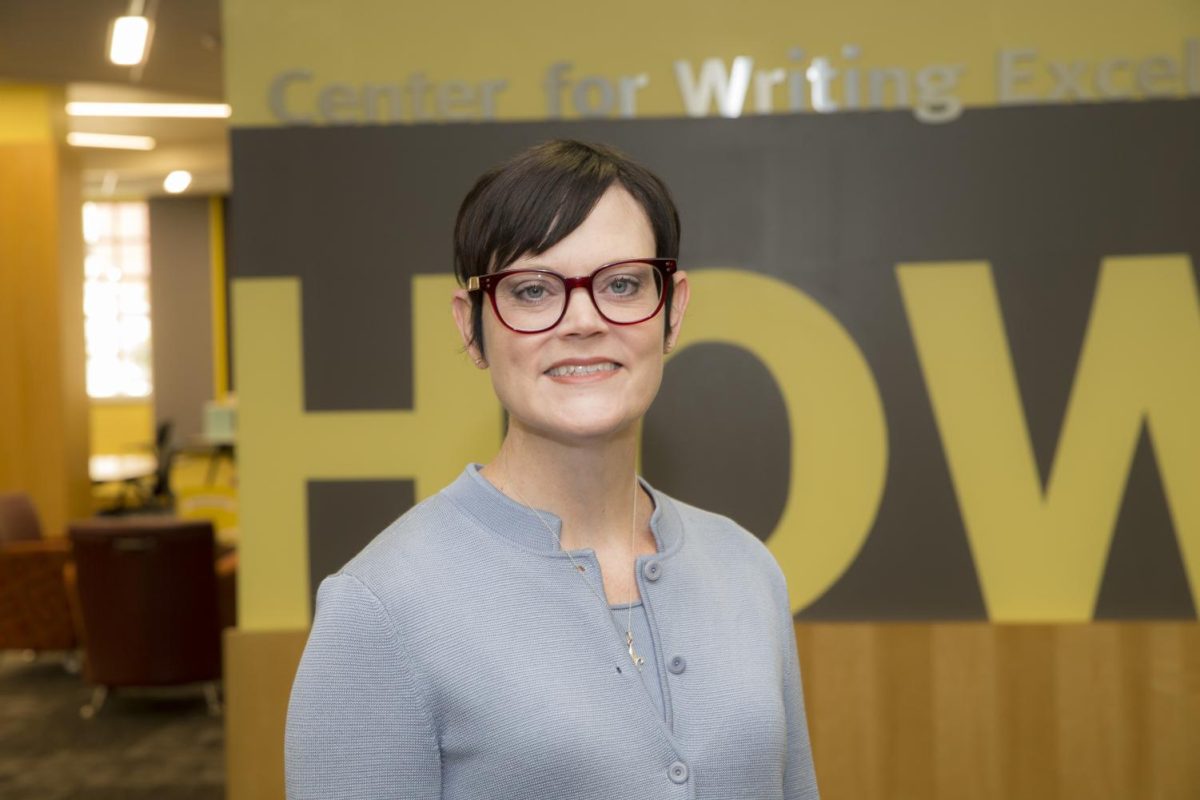League of Women Voters encourages letter-writing campaign against Ohio bill
May 4, 2023
The Oxford League of Women Voters is organizing a letter-writing campaigns against two proposed bills that they say would damage democracy in Ohio.
Senate Joint Resolution 2 (SRJ2), if passed, would completely change the citizen ballot initiative in Ohio, league officials say. The bill would require signatures from every county in Ohio for an issue to even be considered for the ballot. Then, if placed on the ballot, it would need 60% to pass, compared to 50% now.
Elizabeth Wardle is the co-president for voter services of the League of Women Voters, as well as the director of Miami University’s Howe Center for Writing Excellence.
“The sponsor of the bill has said in no uncertain terms that the reason he’s doing this is because people are gathering signatures to get abortion on the ballot in the fall and also to require fair districts to be redrawn,” Wardle said.
The second bill, Senate Bill 83 (SB83) if passed would make changes to higher education in Ohio.
The proposed bill reads that “the chancellor of higher education shall not distribute any state funds appropriated for institutional purposes to a private institution of higher education unless the institution … does not require diversity, equity, and inclusion courses or training for students, staff, or faculty.”
The League of Women Voters, a bipartisan group committed to democracy and the Howe Center for Writing Excellence at Miami University sponsored an event for people to write letters or testimony regarding the bills May 4 at King Library.
The goal of the event is to help people understand what is currently going on in Ohio around voting rights and democracy and allow them to take action, said league member Lexi Marsh, a member of the League of Women voters.
“It is easy for people to feel overwhelmed. I think with how connected we all are, it kind of waters everything down,” she said. “It just becomes too much if you don’t know the details.”
“Our lives are already overwhelming, and I think it’s hard to find the energy to fight back…I’m hoping that this will educate people, but also get them angry, because we’re at a place where we can’t be passive, we can’t accept it,” Marsh said. “I hope that this will change people’s minds, or at least, give them one thing that they can focus on.”
Clara Conover is a third year Miami University student majoring in political science and geography and sustainable development, participating in the combined bachelor’s and masters’ degree program in geography. Conover is also on the student advisory board for Miami’s Urban Cohort.
“All of this really does impact our futures,” she said. “If students don’t get involved, then that’s an entire demographic of people impacted who won’t get their voices heard…it’s just really important that the people who will be impacted have a say.”
Wardle said for over a hundred years, Ohio citizens have been able to collect signatures to put issues on the ballot. Under current law, a citizen ballot initiative requires signatures from 44 Ohio counties to get on the ballot. Under the new measure, it would require signatures from 5% of voters in all 88 counties. As well, it would now require 60 % of votes to pass, rather than 50%.
“If there is an issue that people really care about, like abortion rights or gun rights or reform, the only way that we’re gonna get that passed is if citizen initiatives are on the ballot… we will completely lose our ability to do that, and we can’t really just vote in other people because they’ve gerrymandered the maps,” said Wardle.
She said she hopes to get as many students and community members involved as possible before the next election.
“I feel like a lot of people care but it’s about directing that care to doing something active, instead of just talking about it,” Conover said. “The more legislators see how much people care and how much people are willing to put up a fight for it is key in making that larger message of opposition clear.”
If approved by the legislature, a special election to vote on the measure will take place in August, at a cost of about $20 million for a single initiative. Only about 8% of voters typically show up to a special election, said Wardle.
Jen Miller, the executive director of the League of Women Voters of Ohio, sent out a press release May 3 after Ohio House members canceled a committee hearing on holding a special election in August.
Miller wrote in the statement, “we are heartened that the House session and related committees were canceled today. It’s my sincere hope that Ohio lawmakers will actually put the rights of everyday Ohioans over the bidding of special interests and out of state billionaires.”
If passed, Gov. Mike DeWine will decide whether to sign the SJR2 bill or not in August, Wardle said.
Wardle said, “that’s why we called this event Act Now to Save Democracy. I think this is make or break time in Ohio, definitely.”
To leave a telephone message for your State Representative or State Senator, call 1-800-282-0253. Monday – Friday 8:30 a.m. – 5 p.m.















